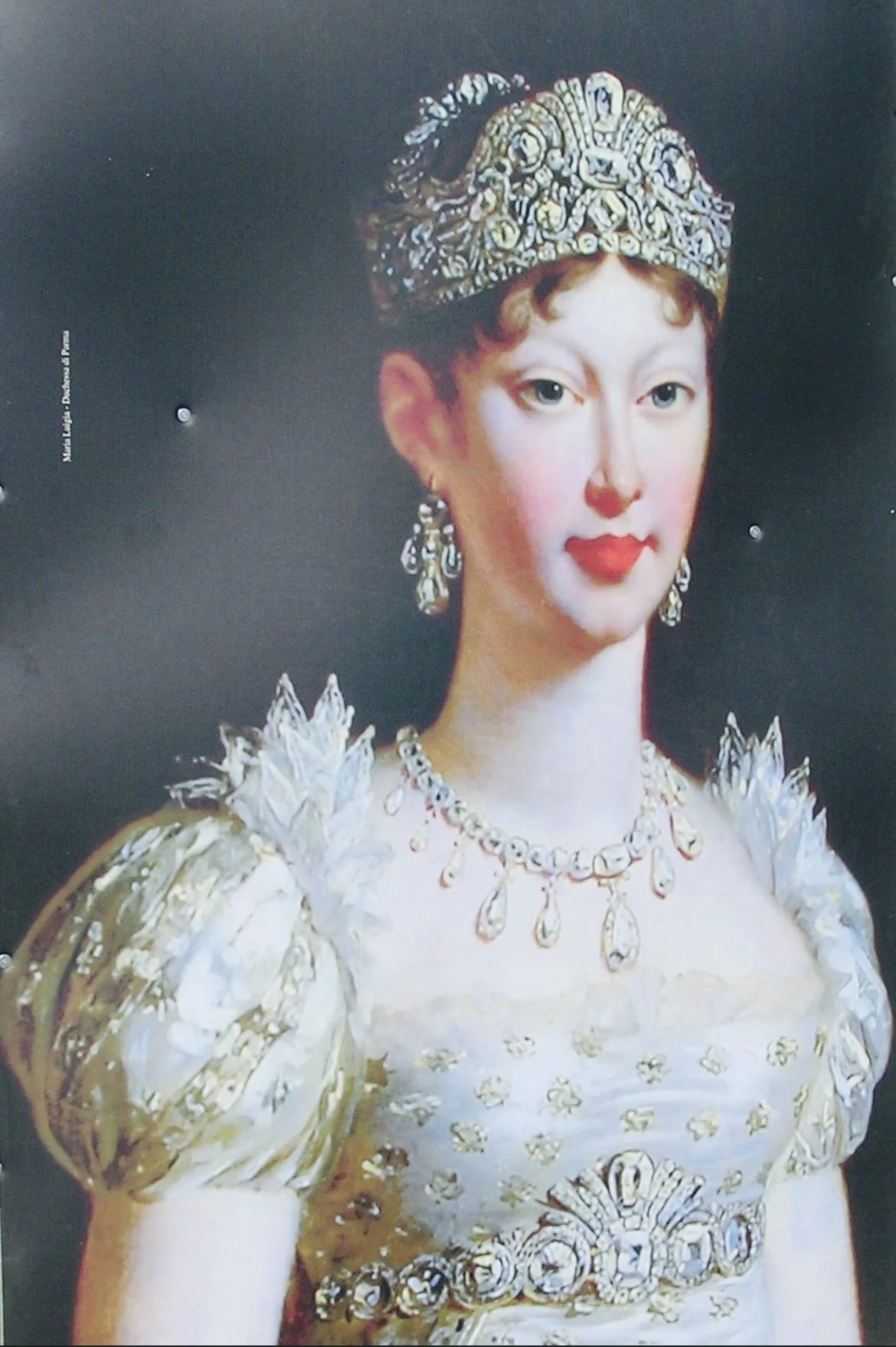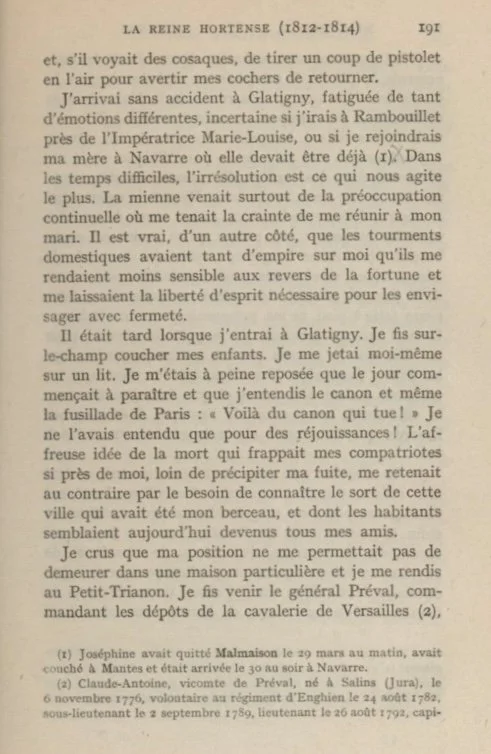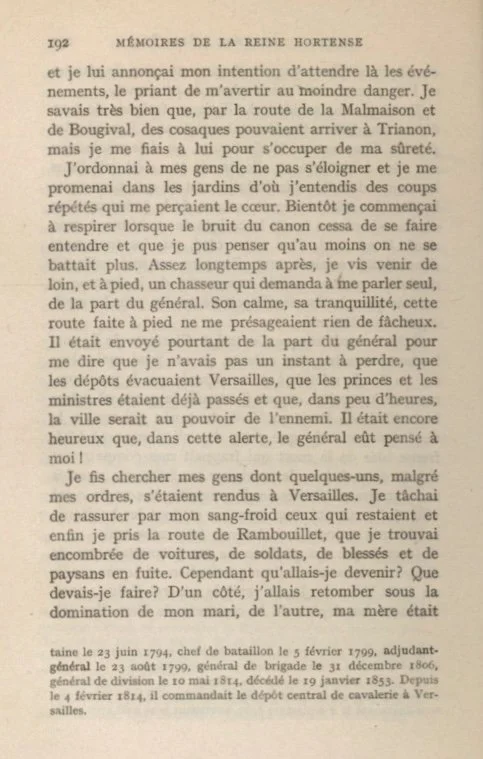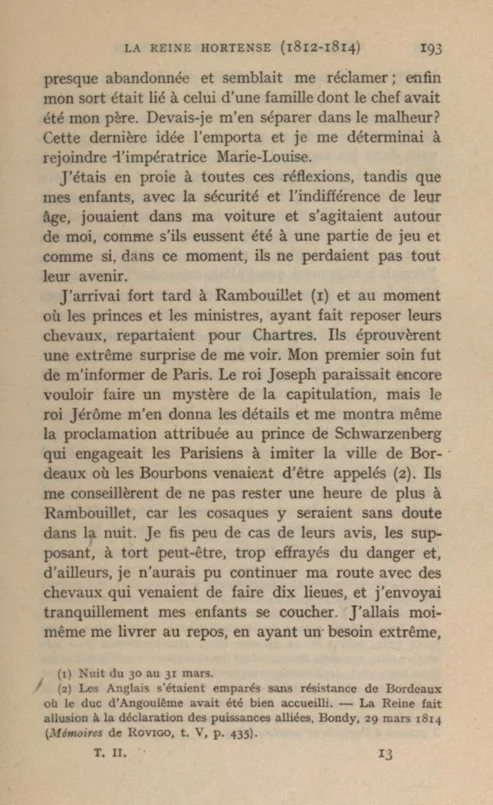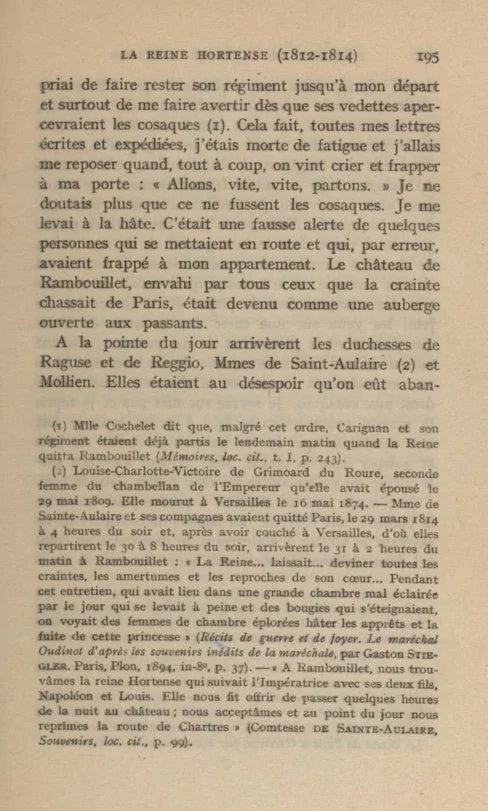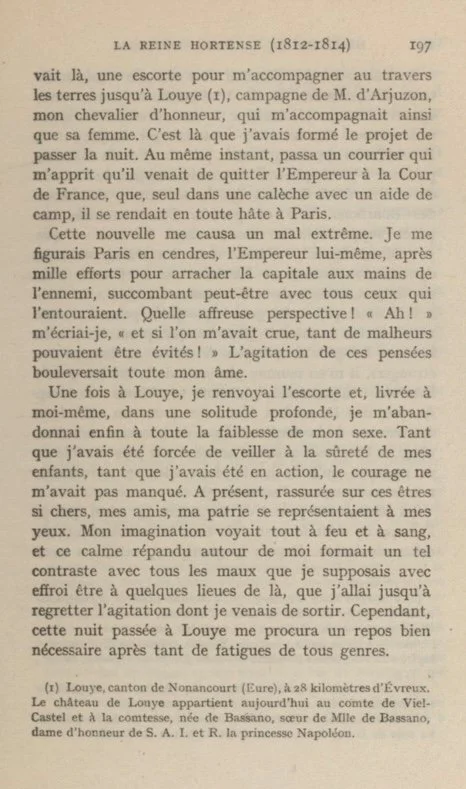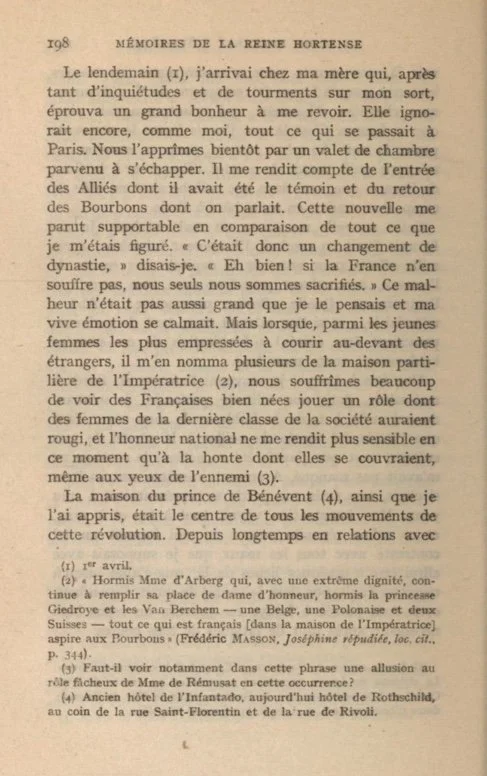Let’s have another look at Hortense’s Memoirs. If you want to read the book it is available for free at the side bar in English and French. Use the widget on the sidebar to translate the text below into pretty much any language.
We see here how it had been decided ahead of time in what direction the organized traitors wanted to nudge Hortense and how she resisted their script. Once a person understands the hidden hand spy system, the marks of their craft and their practitioners become fairly easy for anyone to spot anywhere and at any time. They are identified by their actions.
Hortense’s memoirs continues:
Hardly had I secured a little rest when day began to break and I heard the sound of cannon and even musketry from Paris.
“The cannon thunders, claiming its victims." I had never before heard it except in connection with public rejoicing.
The frightful idea that death was overtaking my fellow countrymen so near at hand, instead of hastening my flight, made me desire to linger and at least learn what fate had overtaken this city which had been my cradle, and all of whose inhabitants seemed suddenly dear to me.
I felt, however, that my rank would not allow me to remain in a private house and I went on to the Petit Trianon. I sent for General Preval, who commanded the cavalry depots at Versailles, and informed him of any intention of remaining there while waiting further events. At the same time, I asked him to let me know the moment there was any danger. I was well aware of the fact that it was possible for the Cossacks to arrive at the Trianon by way of the Malmaison and Bougival road, but I trusted him to protect me.
I ordered my servants not to leave the premises and I walked about the gardens hearing the sound of firing, which filled me with anxiety. Soon, however, I was reassured, as the noise stopped. Then I had at least some grounds to believe that fighting was no longer going on.
After a considerable time had elapsed, I caught sight of a soldier of one of the chasseur regiments approaching on foot. He asked to speak to me privately to deliver a message from the General. His calm attitude, the fact that he was on foot and seemed in no way disturbed made me feel that his news could not be in the least alarming.
Nevertheless, the General had sent him to me to say that there was not a moment to be lost, that the depot troops were leaving Versailles, the princes and marshals had already passed through the town, and within a few hours the city would be occupied by the enemy. I sent for my attendants, some of whom in spite of my orders had gone into Versailles.
I attempted to reassure those who had remained with me as well as I could, and at last set out on the road to Rambouillet. I found it congested by carriages, soldiers, wounded, and peasant refugees.
What was to become of me? Which way was I to turn? On the one hand I was liable to fall again into the clutches of my husband, on the other there was my mother, who seemed entirely abandoned by everyone and who might be waiting for my arrival.
Finally, there was the thought that my fate was wound up with that of a family whose head had been a father to me. Could I desert them in their distress? This last argument proved the strongest of all and I determined to rejoin Empress Marie Louise.
I was turning over these thoughts in my mind while my children with the unconcern of their age played about in the carriage and enjoyed themselves beside me as if our flight were nothing more than a game and as if at that moment their entire future were not being destroyed.
I arrived very late at Rambouillet, at the moment when the princes and cabinet ministers, having rested their horses, were setting out for Chartres. They were greatly surprised to see me. My first act was to inquire what had happened in Paris. King Joseph seemed inclined to conceal the fact that the city had capitulated, but King Jerome gave me all the details and even showed me the proclamation, said to have been written by the Prince of Schwarzenberg, which invited the Parisians to follow the example of the inhabitants of the city of Bordeaux, who had demanded the return of the Bourbons.
They advised me not to remain an hour longer at Rambouillet, for the Cossacks would doubtless enter the town that same night. I paid little attention to their advice, considering, perhaps erroneously, that they were unduly alarmed. Moreover, it was out of the question to go on with horses that had just traveled twenty-five miles. I quietly sent my children to bed and was about to seek a little much needed repose myself when an orderly with a letter from my husband was announced.
The latter had passed through Versailles during the night. Furious at not finding me with the Empress when he caught up with her, he commanded me in the harshest language to join him immediately.
He added an official order to this effect signed by the Secretary of State and by the Empress herself. This letter contained such an outrageous sentence that I was infuriated by it. It settled any hesitations I might have had and I no longer wondered whether or not I should go to stay with my mother.
I wrote my husband that I had been on the point of joining the Empress Marie Louise, but that his severity had reminded me too clearly of my former sufferings, and I intended to escape them by taking refuge with my mother.
At the same time, I reassured him as to the health of his children. I also wrote the Empress and the Emperor apologizing for my conduct and giving the true reasons for it.
All these letters I turned over to the officer, who had practically received orders to take me back with him as a prisoner. While I was writing these letters, I was interrupted for a moment by Colonel de Carignan, who with his regiment was supposed to cover the retreat of the rest of the troops and who was much perplexed as to what to do as he could find no one qualified to issue orders.
He was indignant regarding the conduct of the Minister of War who had left without leaving any instructions. I was forced to issue them myself finally. I asked him to keep his regiment in town until I had left and especially to inform me if his scouts caught sight of any Cossacks.
This having been done and my letters written and addressed, I was completely worn out and was about to snatch a few moments' rest when suddenly someone came knocking violently at my door, crying out as he did so, "Make haste, make haste; we must leave at once."
I was sure the Cossacks were close at hand and sprang up, but it turned out to be a false alarm caused by some other travelers who were leaving and who by mistake had knocked at my door.
The Chateau of Rambouillet, filled with all those people whose fears had caused them to leave Paris, had become a public hostelry open to every passer-by.
At dawn the Duchesse de Raguse, and the Duchesse de Reggio, Madame de Sainte-Aulaire and Madame Mollien arrived. They were greatly upset because the capital had capitulated. They told me the Emperor was doubtless proceeding toward Paris and that their husbands were prepared to die fighting beside him. After listening to a hundred futile comments on the situation, I advised them not to remain any longer at Rambouillet, since the town was in danger and I was leaving it immediately myself to go on to Navarre.
My route led through the forests. I sent a game-keeper ahead of me to act as guide. Hardly had I entered the wood when one of my servants dashed up at full speed, completely out of breath, to announce that he had just caught sight of the Cossacks in the near-by plain of La Queue.
I examined a map of the environs of Paris, Which I had had the foresight to secure, as there was no one with me who could advise me, and I saw that taking into account the distance and time element I was heading directly toward the enemy. I retraced my route and returned to the broad military highway.
I had scarcely proceeded a mile on the road when I saw a Cossack emerge from the woods and gallop off across the plain. My groom dashed after him at full speed, and he disappeared in the woods. I had not a moment to lose in crossing the plain before the arrival of the main body of the Cossacks.
Not being able to stop at Maintenon I asked the colonel of a French regiment that fortunately happened to be there to let me have an escort to accompany me across country as far as Louye, the estate belonging to Monsieur d'Arjuzon, my gentleman in waiting, who with his wife had accompanied. me.
It was there I was planning to spend the night. At that moment a messenger passed from whom I learned that he had just left the Emperor at the Cour de France and that the Emperor was going alone with an aide-de-camp to Paris.
This news affected me deeply. I imagined that Paris was about to be entirely destroyed and that the Emperor, after having made desperate efforts to rescue his capital from the hands of the enemy, would perhaps succumb himself along with all those who were by his side.
What a horrible thought that was! "Ah," I exclaimed, "if my advice had only been followed all these disasters might have been avoided."
The shock of all these thoughts threw my mind into utter confusion. Having at last arrived at Louye I dismissed my escort and entirely alone gave way at last to the weaknesses of my sex. As long as I had been obliged to protect the safety of my children, as long as I had been active, courage had not deserted me. But now, reassured as to the fate of those beings who were particularly dear to me, I was conscious of the disaster that had befallen my country and my friends.
Blood and flames seemed to be all about me. The quiet of this countryside contrasted so violently with the carnage which I imagined was taking place only a few miles off that I almost regretted the turmoil from which I had just escaped.
Nevertheless, the night spent at Louye gave me a rest I needed after the fatigues of all kinds that I had lately undergone. The following morning, I arrived at the house of my mother, who after having been so much worried and so anxious about me was overjoyed to see me once more.
The original French is available below:

